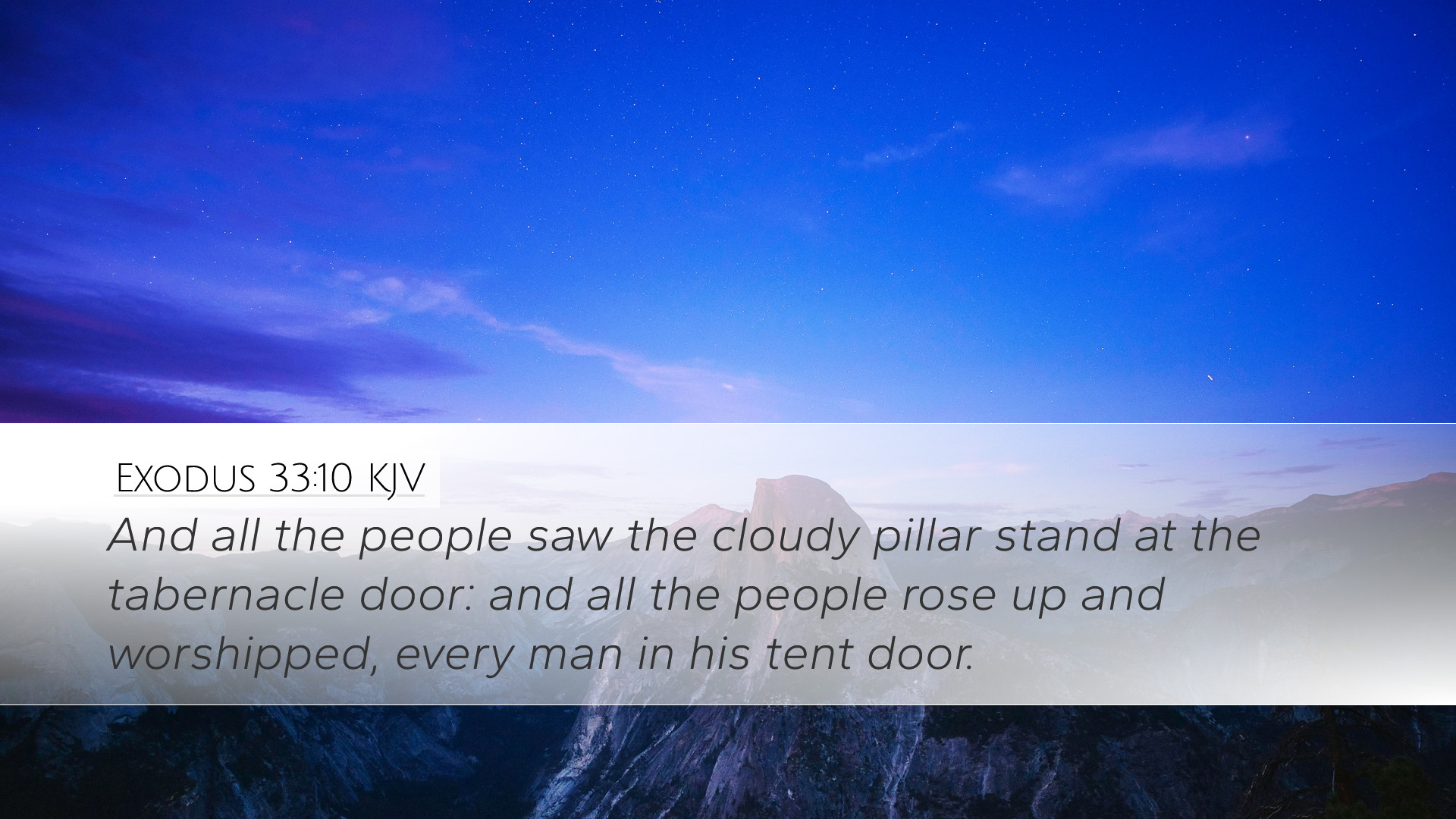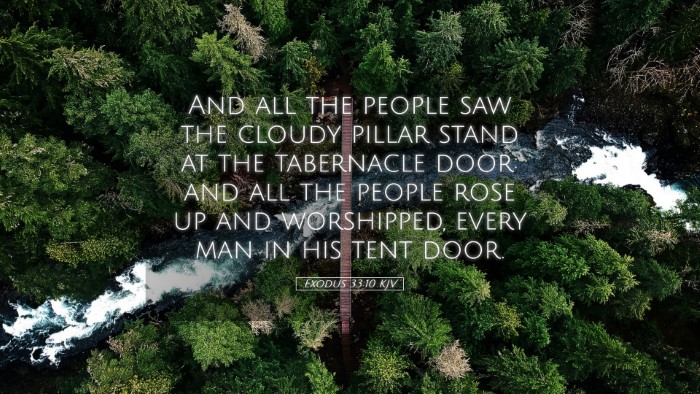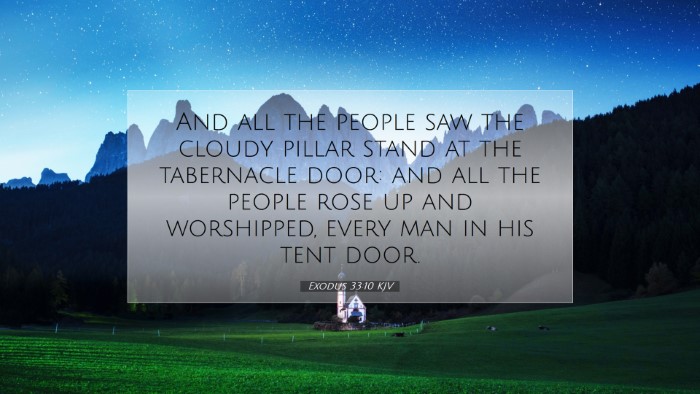Commentary on Exodus 33:10
Exodus 33:10 (ESV): "And when all the people saw the pillar of cloud standing at the entrance of the tent, all the people would rise up and worship, each at his tent door."
Introduction
The passage from Exodus 33:10 reflects a significant moment in the relationship between God and His people. It showcases not only the tangible presence of God among the Israelites but also their response to that divine presence. This commentary draws insights from several public domain sources, including Matthew Henry, Albert Barnes, and Adam Clarke, to provide a comprehensive understanding of this verse.
The Significance of the Pillar of Cloud
Matthew Henry's Insights:
Henry emphasizes the miraculous nature of the pillar of cloud, which represented God’s constant guidance. He notes that this visible manifestation served as a reassurance to the Israelites, affirming that God was with them as they journeyed through the wilderness. The fact that it stood at the entrance of the tent signifies God's dwelling among His people.
Albert Barnes's Commentary:
Barnes expands on the symbolic meaning of the cloud. He posits that the cloud symbolizes divine guidance, protection, and presence. The Israelites' recognition of the cloud led them to worship, indicating that their awareness of God's proximity provoked a spontaneous act of reverence. Barnes draws attention to the contrast between their worship and the idols of Egypt, highlighting the importance of a direct relationship with the living God.
Adam Clarke's Perspective:
Clarke provides a historical context to understand the significance of the cloud. He suggests that the cloud was not only a guide but also a protector against the harsh elements of the wilderness. Clarke mentions that this physical experience of God’s guidance was intended to develop a deeper faith among the Israelites. Seeing the cloud consistently reminded them of their covenant with God.
The Reaction of the People
The Act of Worship:
The response of the people—rising up and worshipping—demonstrates an instinctual reverence towards God when in His presence. Matthew Henry notes that worship is an appropriate reaction to the reality of God among His people. This act of worship, occurring at each tent door, signifies that worship can occur in personal spaces, not just corporately. Each individual had a personal connection to God, which suggests inclusivity in worship.
Albert Barnes' Analysis:
Barnes adds that the worship was not merely ritualistic; it was an acknowledgment of God's sovereignty. The immediacy of their worship upon seeing the cloud indicates that the experience of God's presence compelled them to honor Him—reflecting a heart posture that recognizes divine authority and benevolence.
Adam Clarke's Interpretation:
According to Clarke, the act of worship indicates a restoration of dignity and relationship with God. Their worship at the tent doors signifies a domestic and personal acknowledgment of God's majesty; they could not remain indifferent to the presence of the Almighty. Clarke points out that this aspect of worship fosters a personal encounter with God that is foundational for spiritual growth.
Theological Implications
This passage raises significant theological reflections for today’s pastors, students, and scholars.
- The Presence of God: The pillar of cloud is a powerful reminder of God's desire to dwell among His people (Exodus 25:8).
- The Transformative Nature of Worship: The spontaneous worship of the Israelites challenges modern believers to respond with reverence and awe when encountering God.
- The Importance of Community Worship: While worship is personal, the collective response of the community emphasizes the need for shared faith experiences among believers.
Conclusion
Exodus 33:10 serves as an extraordinary reminder of God's faithfulness and the importance of recognizing and responding to His presence. The insights of Matthew Henry, Albert Barnes, and Adam Clarke illuminate the multifaceted relationship between God and His people, highlighting the significance of worship and the assurance of divine guidance. For pastors, theologians, and students alike, this passage underscores the call to a deeper experience of God's presence and a renewed commitment to worship that transcends contexts and traditions.


